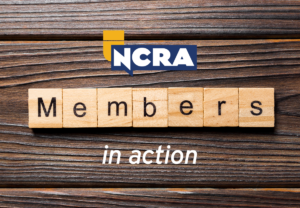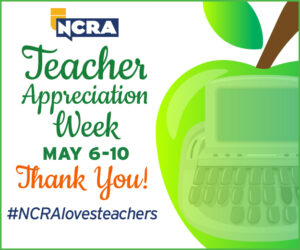Vocabulary is critical to your success as a stenocaptioner. You must have a well-developed court reporting dictionary, containing all of the specialty terminology for whatever you will be captioning, plus general terms that might come up. Here is a list, offered by Patty White of Caption Colorado and Kevin Daniel of Bay Area Captioning, of some (yes, I said “some”) of what should be in an American news captioner’s dictionary:
- Presidents (past, present, and potential)
- First Ladies
- Cabinet members
- Senate
- House of Representatives
- National figures (government, religious, entertainment, criminal, etc.)
- All the countries in the world and their capitals
- All major U.S. cities and some of the smaller ones
- Geographical information such as mountain ranges, mountain peaks, oceans, rivers, lakes, local creeks
- Meteorological terms, weather terms
- World leaders, including United Nations leaders
- World history terminology, as in Tet Offensive, Bolsheviks, Chairman Mao, etc.
- Major wars, domestic and international
- Terms related to world organizations like NATO, OPEC, etc.
- Nationalities and languages for foreign nations
- Supreme Court Justices and important Supreme Court decisiosn
- Military leaders; Joint Chiefs of Staff; military bases, weapons of war, like A-10 tank killers, F-15s, Tomahawk missiles, Scuds, etc.
- National parks
- Colleges, universities, and their team names
- Local stuff for the area you plan to caption in: landmarks, hospital, junior colleges, prominent people, etc.
- All the professional sports teams, their nicknames, players, and coaches
- Sports terminology, awards and organizations, both amateur and professional
- Makes and models of automobiles
- Major businesses, brand names, trading organizations, stock terms
- Currencies and major banks around the world
- All the colors, and their shades and hues
- Dog and cat breeds
- Food and their measurements and the spices that go with them
- Holidays: Christian, Jewish, and all other faiths
- Special events, like Kwanzaa, Cinco de Mayo, etc.
- Religious structures, like mosques, temples, etc.
- Books of the Bible and of religions around the world
- Basic chemicals
- Drug names and manufacturers, both legal and illegal
- Common first and last names
- World literature, philosophy, and religious terms, like Aesop, orthodox, Buddhism, Eucharist, the brothers Grimm, etc.
- Political terms, like glasnost, apartheid, anarchy, propaganda, caucus, espatriate, Kremlin, Parliament, etc.
- Computer terms
- Commonly used foreign words and phrases, such as adieu, aloha, de rigeur, fait accompli, modus operandi, etc.
This list was originally published in the January 1998 Journal of Court Reporting.






